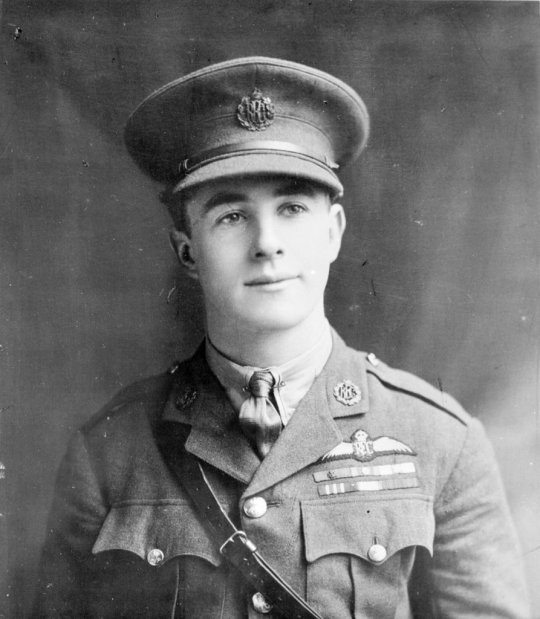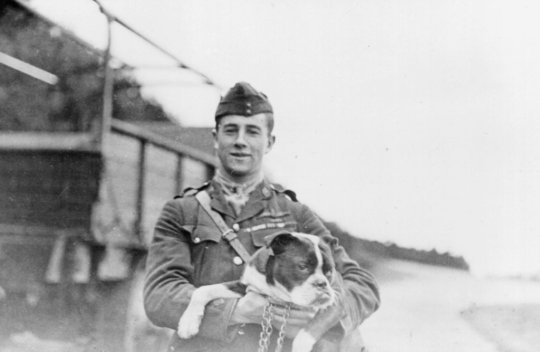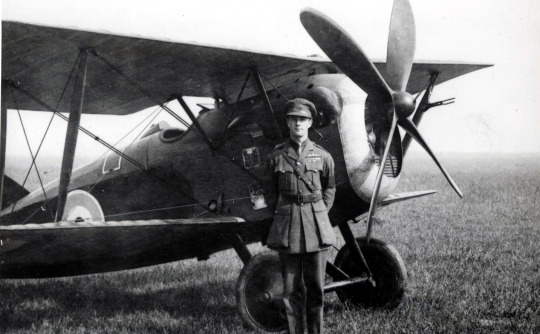#the first world war
Explore tagged Tumblr posts
Text
#polls#military history#the first world war#i would consider the war of 1812 to be a north american theatre of the napoleonic wars#this is a fairly mainstream take#war of the spanish succession#seven years war#napoleonic wars#great war#wwi#i wonder if the napoleonic fandom will skew this poll#seven years' war
35 notes
·
View notes
Text

Highland Dance by men of the 8/10th (Service) Battalion, The Gordon Highlanders outside Arras Cathedral, 24 January 1918.
#ww1#ww1 poetry#ww1 history#history#historical photos#american history#military history#world war i#world war one#the great war#The First World War#the great war 1917#historical photography#photography#vintage photography
796 notes
·
View notes
Text

Indian artillery and red-cross automobile in Bailleul during the First World War, French Flanders region of northern France
French vintage postcard
#briefkaart#photography#artillery#vintage#tarjeta#postkaart#french#postal#photo#postcard#historic#indian#the first world war#carte postale#cross#region#world#ephemera#flanders#automobile#northern#sepia#france#ansichtskarte#postkarte#bailleul
31 notes
·
View notes
Text
This art was inspired by Andreev's work "Красный смех" ☠️



#aesthetic#animedrawing#sketch#anime and manga#anime art#art#artwork#character art#digital art#my art#scketbook#scketh#original art#War#ww1#ww1 history#art on tumblr#books#history#the first world war#Ww1 oc
21 notes
·
View notes
Text





James McCudden WW1 British Flying Ace VC. The girl on the motorbike with him is his sister. He died in Auxi-le-Château, France, 1918 aged 23.
#James McCudden#WW1#Flying Ace#1918#Royal Flying Corps#aeroplane#biplane#Lost generation#the first world war
131 notes
·
View notes
Text

HI HELLO
These are my ww1 characters for a lil project of mine i call "Panopticon" i hope you like them :D (or you could metaphorically throw tomatoes at me that's also an option)
I've also made an entire wiki for them, which you can read here (it's a bit slow to load give it a bit lol)
higher res image
#ww1#wwi#ww1 oc#ww1 fiction#historical oc#art#digital art#illustration#artists on tumblr#oc art#original character#oc#ww1 art#world war 1#the first world war#world war one#historical characters#character design#cartoon#artists of tumblr
34 notes
·
View notes
Text

𝔗𝔥𝔢 𝔇𝔞𝔫𝔠𝔢 𝔬𝔣 𝔇𝔢𝔞𝔱𝔥 𝔟𝔶 𝔅𝔢𝔯𝔫𝔞𝔯𝔡 𝔓𝔞𝔯𝔱𝔯𝔦𝔡𝔤𝔢, յգյԴ
#the dance of death#dance of death#Bernard Partridge#1917#xx century#20th century#memento mori#death#dead#grim reaper#the first world war#the great war#skull#skeleton#art#painting#artwork
66 notes
·
View notes
Note
i saw ur post abt WW1 poetry again and remembered one poem. i don't remember the title or most of it but it ended smth like "19— the _ of May" and that was the war vets response when asked how old he was pls help if u remember this one
I do very well actually, it's one of my all-time favorites! The name of the poem is The Veteran by Margaret Postage Cole. It goes like this :
We came by him sitting in the sun--- Blinded by war, and left. And past the fence Wandered young soldiers from the Hand and Flower Asking advice of his experience. And he said this and that, and told them tales; And all the nightmares of each empty head Blew into air. Then hearing us beside-- "Poor kids, how do they know what's it like" he said. And we stood there, and watched him as he sat Turning his sockets where they went away Until it came to one of us to ask "And you're---how old?" "Nineteen the third of May"
If I am allowed to get a bit off topic for the normal themes of this blog and geek out about this- I genuinely think this is amongst the poems capturing this war the best (next to Lament by F.S. Flint , A Dead Statesman by Rudyard Kipling, The Target by Ivor Gurney and In The Trenches by Isaac Rosenberg in my honest opinion.) You can feel the rug being pulled out from under your feet at that last line, realizing just how young that soldier was- not even 19 yet. Close to it, yes. But still not even over the age he joined into the war. The minimum age to join the army was 18. So for him to be close to that makes me imagine that he couldn't have been deployed in it too long. Yet that short amount of time was enough to already destroy him- to take his eyes. And for what? For him to now send of a new batch of young soldiers to the battlefield he went to? The same battlefield that ruined his life already before it could even begin? Honestly the fact that a lot of these WW1 poems, all written about a war that was utterly senseless and nothing but useless and brutal slaughter of inoccents, fit so well for PJO characters tells us a lot about the gods. Either way, if you're interested in these poems you should definitely check some of the ones I mentioned above out! And feel more than free to hit me up to discuss them ^^
11 notes
·
View notes
Text
Wrocław knows the Red Baron.




The tourist brand.
#wroclaw#wrocław#luftwaffe#manfred von richthofen#the first world war#polen#poland#polska#germany#deutschland
7 notes
·
View notes
Text
I have just found out that Wilfred Owen was killed 1 week before ww1 ended and I will not recover
#ww1#wwi#world war one#the first world war#triple entente#triple alliance#austria hungary#franz ferdinand#1914#1918#history#central powers#europe#dulce et decorum est#wilfred owen
26 notes
·
View notes
Text
Regarding the fictional Sam Gamgee’s link to the First World War, Carpenter’s Biography quotes Tolkien as saying, “My ‘Sam Gamgee’ is indeed a reflexion of the English soldier, of the privates and batmen I knew in the 1914 war, and recognized as so far superior to myself.” A batman, in military parlance, was a soldier who (as well as being required to fight) was tasked with looking after an officer’s kit, cooking, and cleaning. Tolkien’s phrasing in the letter sent to Minchin is different, and very interesting too: “My ‘Samwise’ is indeed (as you note) largely a reflexion of the English soldier—grafted on the village-boys of early days, the memory of the privates and my batmen that I knew in the 1914 War, and recognized as so far superior to myself.” It gives the extra dimension that in portraying Sam, Tolkien had also drawn on memories of lads from the rural outskirts of Birmingham, where he had lived between the ages of three and eight. This dovetails well with his statement elsewhere that the society of the Shire is “more or less a Warwickshire village of about the period of the Diamond Jubilee” (Letters p. 230)—that is, a village like Sarehole in 1897, Queen Victoria’s 60th year on the throne and Tolkien’s fifth on earth. Amid all Tolkien’s astonishing inventiveness, and alongside the vast knowledge of matters mythological and medieval that he poured into his legendarium, this is a point too easily overlooked: contemporary life, especially the life he knew in his formative years, was a powerful well-spring of creativity in The Lord of the Rings. Tolkien’s comment to Minchin also provides support for a point I have made in various talks on how the Great War shaped The Lord of the Rings. By silently linking his hobbits with the boys of 1901, who had grown into the young men of 1914, Tolkien was able to draw directly upon the war into which he and those men were then hurled. He had seen, and felt, how war could change those who went through it. Many of the dangers he describes in The Lord of the Rings may be fantastical, though many are not and others are only symbolically so. But the fear, the resourcefulness, the demoralisation, the courage, the sorrow, the innocent laughter in the face of dreadful odds: all these things he had known, and he infused his fiction with them. This, and memories of those rural roots, bring the hobbits vividly to life.
#Tolkien#Tolkien studies#j.r.r. tolkien#samwise gamgee#tolkien and the great war#wwi#the first world war#first world war#tolkien influences#tolkien's childhood influences#tolkien's contemporary influences#john garth
18 notes
·
View notes
Text

A woman moving to another village takes with her the bones of her dead son, decorated with marigolds, the native mourning flower, Balkan Front, June 1916. Photo by Ariel Varges (1890-1972)
#ww1#wwi#great war#The Great War#The First World War#photography#historical photography#history#historical photos#British history#military history#canadian history#1918#1917#1916#siberia
2K notes
·
View notes
Text

Anti-zeppelin gun used by Brabant-le-Roi during the First World War, Champagne region of eastern France
French vintage postcard
#photo#france#ansichtskarte#champagne#postal#postkaart#sepia#french#tarjeta#ephemera#photography#carte postale#brabant#historic#eastern#world#anti#zeppelin#briefkaart#brabant-le-roi#postcard#vintage#region#postkarte#the first world war
32 notes
·
View notes
Text
“The autocratic rulers of Russia, Prussia and Austria wanted to crush the revolutionary ideas for which Napoleon stood, including meritocracy, equality before the law, anti-feudalism and religious toleration. Essentially, they wanted to turn the clock back to a time when Europe was safe for aristocracy. At this they succeeded—until the outbreak of the Great War a century later.”
Andrew Roberts, Smithsonian magazine, June 2015
Theory that World War I is the continuation and completion of the Napoleonic wars. In this essay I will…
#Napoleon#napoleon bonaparte#19th century#napoleonic era#20th century#world war one#world war 1#world war I#ww1#WWI#napoleonic wars#napoleonic#the First World War#the Great War#history#essay#quote#Andrew Roberts#Andrew Roberts quote#1800s#1900s#aristocracy#French Revolution#Russia#Austria#Prussia#France#first french empire#french empire#text post
18 notes
·
View notes
Text









What did the world look like after the end of the First World War?
A few diagrams from The British People's Atlas of 1920.
#history#maps#world map#atlas#languages#economy#railways#the first world war#air routes#agricultural industry
0 notes
